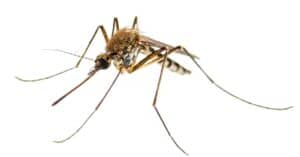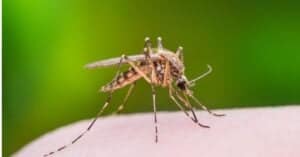Texas reigns supreme when it comes to mosquitos. Due to the state’s warm temperatures, mosquito season can last from February to November, much longer than in many other areas. According to Orkin, Texas has seven cities on its “Top Mosquito Cities” list.
There are over 200 mosquito species in the United States; only 12 can carry diseases and pathogens. You can find five major mosquito species in the “Lone Star” state, four of which can spread diseases and pathogens. Discover the main culprit mosquitos in Texas, what diseases they carry, and how you can prevent mosquito bites.
Upland Flood Water Mosquito
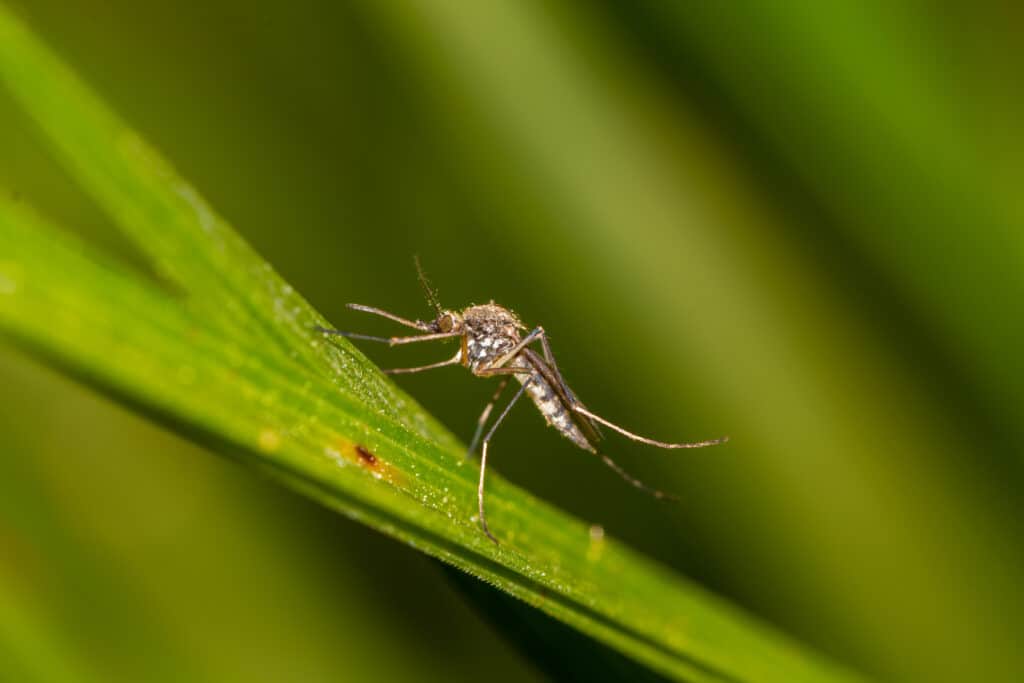
Upland flood water mosquitos are usually near standing water and are most active at night, dusk, and dawn.
©Roziline/Shutterstock.com
Upland water mosquitos are easily recognizable from their “B” shaped marking on their abdomens. They are most active at night, dusk, and dawn and will even bite during the day in shaded areas. These pests lay their eggs near floods or standing water and are usually nearby unless they need to search for food.
These mosquitos can transmit Bunyaviridae, which can cause viral hemorrhagic fever. Professionals advise people to avoid flooded areas, remove all standing water sources, trim landscapes, and remove clutters from their yards as they produce breeding grounds.
Eastern Salt Marsh Mosquito
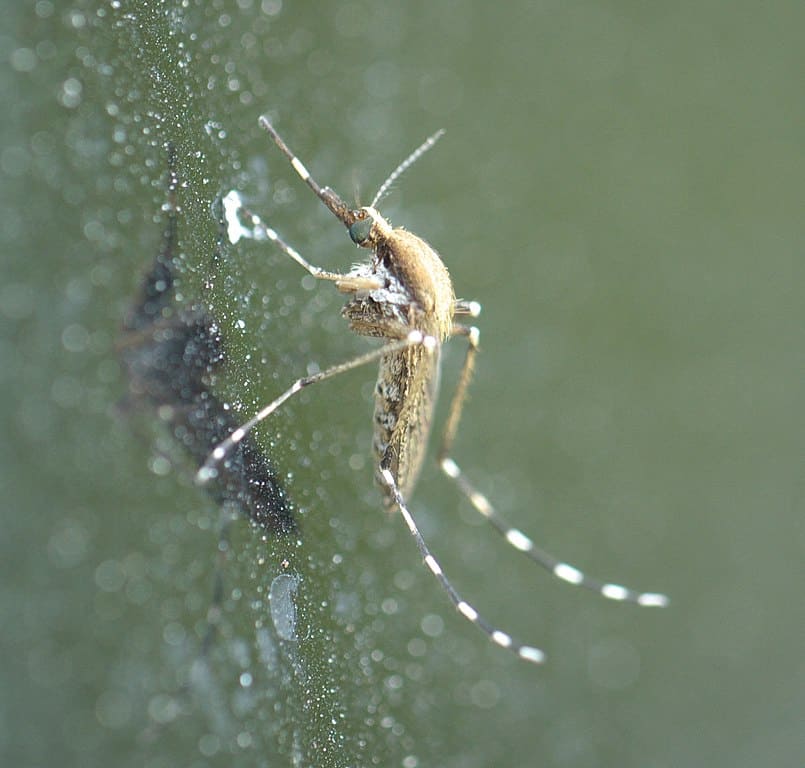
The eastern salt marsh mosquito lives in thick marshes but will fly long distances for sustenance.
©xpda / CC BY-SA 4.0 – License
As their name suggests, eastern salt marsh mosquitos live in thick marshes, shallow puddles, and other inland brackish water sources. You may recognize them from their dark scales and white markings across their bodies and legs. However, this species has an exceptionally long flight distance and will often be more than 100 miles from their larval habitats.
They are active day and night, and the females are aggressive biters who will take meals from most animals, especially humans. The eastern salt marsh can carry Eastern Equine Encephalitis (EEE) and dog heartworm.
Southern House Mosquito
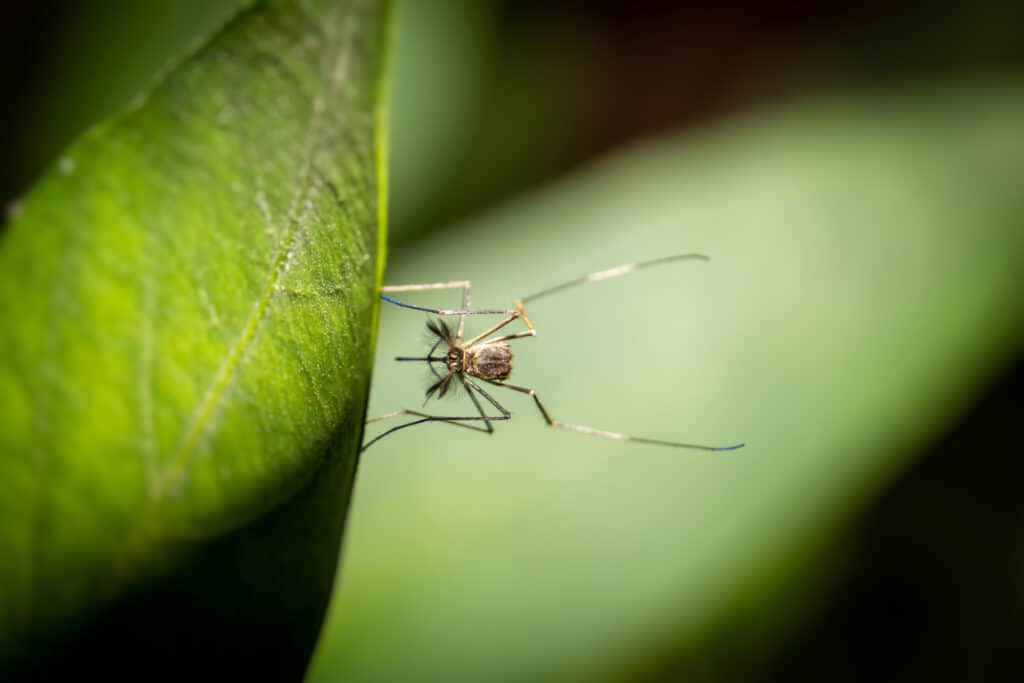
The southern house mosquito is nocturnal and loves dirty water.
©iStock.com/Arnav Ray
Southern mosquitos thrive in warm weather, making them perfect pests for sunny, hot Texas. This species is medium-sized and brown and prefer to feed and lay eggs at night. They love dirty water collections like stagnant drains, septic tanks, and burrow pits. Males and females eat sugar from plants, but females seek blood after mating as it’s suitable for egg development.
Southern house mosquitos prefer the blood from birds but will bite humans given the opportunity. They spread several diseases and infections, such as West Nile, encephalitis, filariasis, and avian malaria.
Asian Tiger Mosquito
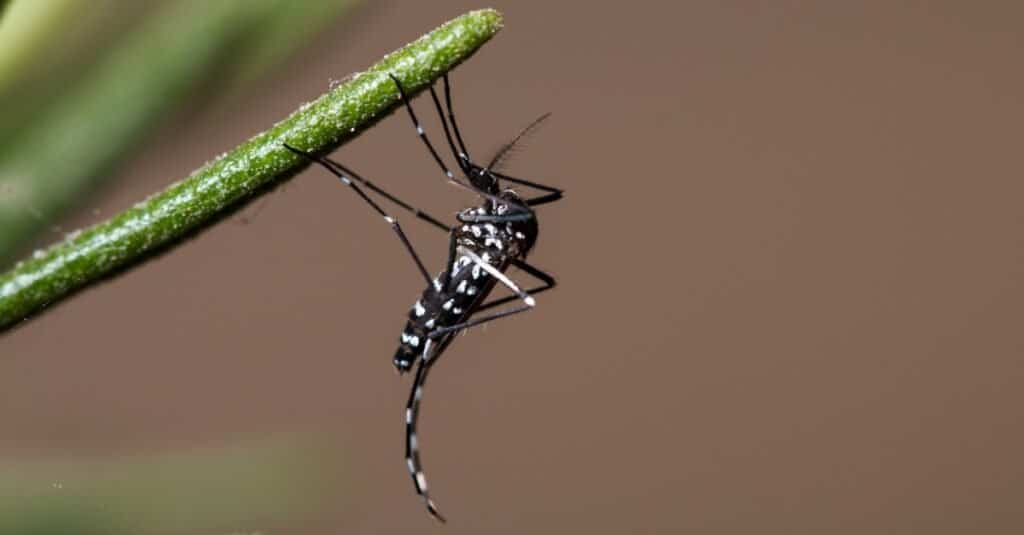
The
tiger
mosquito is active during the day and is known for being a persistent biter.
©Oliver Spiteri/Shutterstock.com
Tiger mosquitos, or forest mosquitos, are native to Southeast Asia but spread to other countries by transported goods. They get their name from the white bands that run across their body, but it may be difficult to distinguish them from other species. Females lay their eggs next to water sources and don’t stray far. You are more likely to be bitten during the day in forested areas.
The tiger mosquito is a persistent biter known to be a particular nuisance to humans. This species can carry diseases like Dengue Fever, Yellow Fever, encephalitis, and heartworm in pets.
Dark Rice Field Mosquito
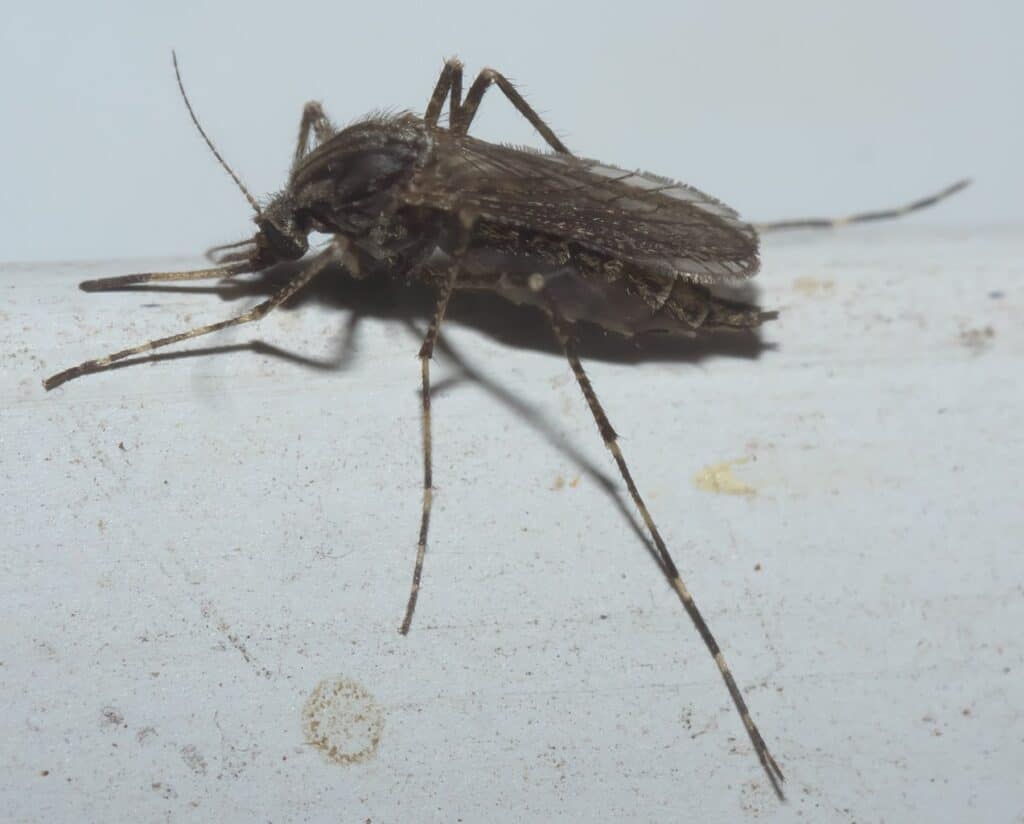
The dark rice field mosquito lives on agricultural land and is harmful to farm animals.
©xpda / CC BY-SA 4.0 – License
You can find the dark rice field mosquitos in much of North and South America. They get their name from their dark coloration and tendency to live in flooded rice fields. They are often around sun-exposed water sources, like pooled water on agricultural land. Their population tends to explode after periods of high precipitation.
These pests are an itchy nuisance but are not known for causing harmful effects on humans (they are, however, detrimental to livestock). The best way to deter the dark rice field mosquito is to remove any standing water on your property.
What Diseases Do Mosquitos Carry?
Infected mosquitos can only spread diseases. After being bitten by an infected mosquito, you have a one in 300 chance of developing the illness. Most people infected by a mosquito-borne disease have mild, short-term symptoms, while others can develop more severe, long-term effects. In extreme cases, these illnesses can lead to death.
Mosquitos spread diseases like Zika Virus, West Nile Virus, Chikungunya Virus, dengue, malaria, encephalitis, and more. Each species can carry and transmit different illnesses, and mosquitos vary by region.
Only female mosquitos eat blood meals, and their bites inject saliva into your skin. Your body produces a mild allergic reaction and responds with an itching, red bump. Some people’s bodies react more severely by causing fever, hives, and swollen lymph nodes.
The best way to treat a mosquito bite is to wash the area with soap and water, apply an ice pack, and use anti-itching cream. You should visit the emergency room if your symptoms following a mosquito bite include nausea, fever, swollen lymph nodes, a rash, or a prolonged headache. These intense symptoms can be signs of mosquito-borne illness.
How to Prevent Mosquito Bites?
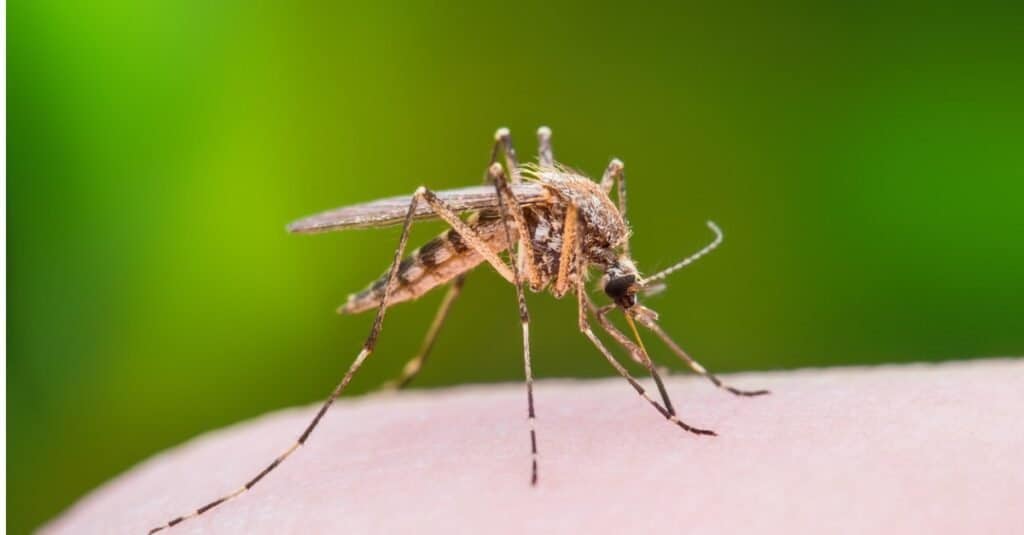
Mosquitoes are the world’s deadliest animals because of their spread of fatal diseases.
©iStock.com/nechaev-kon
When venturing outside, the best way to protect yourself against mosquito bites is to use insect repellant and wear long-sleeved shirts and long pants. Use an EPA-registered repellant, follow the instructions, and reapply as needed. You can also treat your clothing with 0.5% permethrin, an insecticide, to deter mosquitos. If you plan on being outside for an extended period, consider using mosquito nets coated in permethrin. You can also place netting over strollers to protect children.
People can also develop mosquito infestations on their property. However, you can quickly reverse it with a few adjustments.
- Install screens on windows and doors. Repair any holes in screens to keep them outside.
- Use air conditioning. Mosquitos require a warm, humid environment and are naturally repelled by cool, dry homes.
- Look for and remove any standing water on your property, such as pools, discarded tires, buckets, planters, toys, bird baths, and trash containers. If you can’t remove it, dump the water, turn the item over, or cover it. Ensure you look for water-holding containers inside and outside.
The photo featured at the top of this post is © iStock.com/auimeesri
Thank you for reading! Have some feedback for us? Contact the AZ Animals editorial team.



